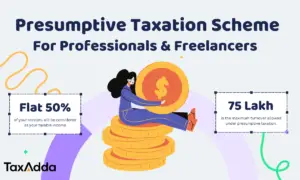If Leave salary encashment is received by any employee while in employment then it is fully taxable in the hands of employee. While if leave encashment is received in case of retirement or superannuation or resignation, then exemption is available upto the following limits.
In case of Central government or State government employee(excluding employees of a local authority or statutory corporation) – Fully Exempt
In case of any other employee –
Least of the following is exempt:-
- Actual amount received
- 3,00,000
- 10 months average salary
- Average salary x leaves at the credit of an employee (leaves cannot exceed 30 days for every completed year of service, fraction of a year is to be ignored)
Salary includes basic pay, dearness allowance(if it forms part of the retirement benefits) and percentage wise fixed commission on turnover
Average Salary = Average of salary drawn in the last 10 months immediately preceding the date of retirement.
If leave encashment is received by an employee from more than one employer in the same previous year or in different previous years the aggregate maximum amount exempt from tax on account of leave encashment cannot exceed Rs. 3,00,000.
Leave salary paid to the legal heirs of the assessee, who dies during the employment will not be taxable.
Also Read: Section 43B – Leave Encashment is allowed as expense to employer when paid before due date.

